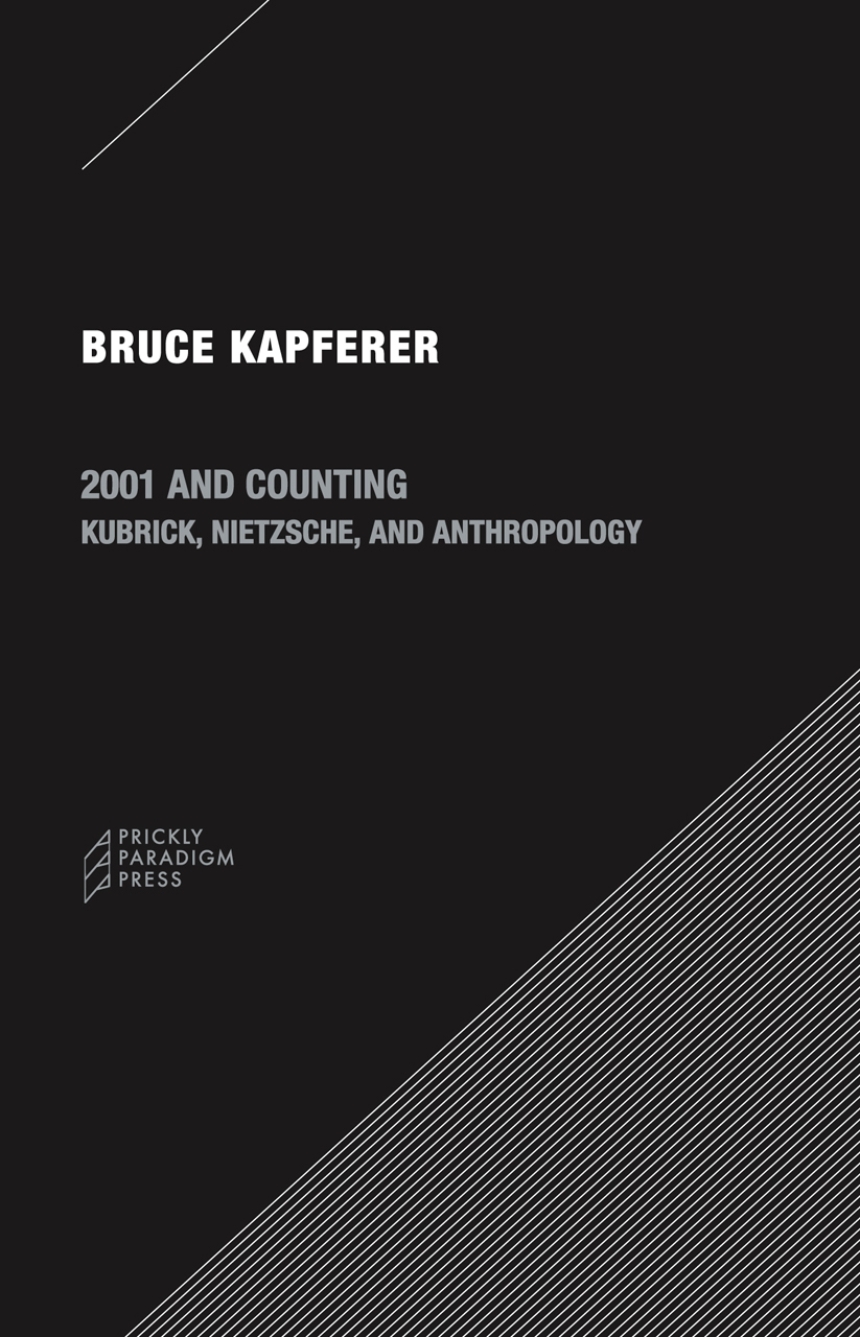Stanley Kubrick’s 2001: A Space Odyssey is widely recognized as a cult classic. Despite mixed critical reception, the dark and difficult movie mesmerized audiences at the time of its initial screening in 1968 and went on to become one the highest grossing films of the decade.
In 2001 and Counting, renowned anthropologist Bruce Kapferer revisits 2001: A Space Odyssey, making a compelling case for its continued cultural relevance. While the film’s earliest audiences considered it to be a critical examination of European and American realities at the height of the Cold War, Kapferer shows that Kubrick’s masterwork speaks equally well to concerns of the contemporary world, including the Iraq War, the 2008 financial crisis, and the material and political effects of neoliberalism. Kapferer explores Kubrick’s central theme—the ever-changing relationship between humanity and technology—both with regard to current events and through the lens of Nietzsche’s Thus Spoke Zarathustra and the mythical concept of the eternal return.
A thought-provoking exploration of the cultural power of cinema, this volume by one of anthropology’s most insightful and imaginative thinkers will appeal to anthropologists and cineastes alike.
In 2001 and Counting, renowned anthropologist Bruce Kapferer revisits 2001: A Space Odyssey, making a compelling case for its continued cultural relevance. While the film’s earliest audiences considered it to be a critical examination of European and American realities at the height of the Cold War, Kapferer shows that Kubrick’s masterwork speaks equally well to concerns of the contemporary world, including the Iraq War, the 2008 financial crisis, and the material and political effects of neoliberalism. Kapferer explores Kubrick’s central theme—the ever-changing relationship between humanity and technology—both with regard to current events and through the lens of Nietzsche’s Thus Spoke Zarathustra and the mythical concept of the eternal return.
A thought-provoking exploration of the cultural power of cinema, this volume by one of anthropology’s most insightful and imaginative thinkers will appeal to anthropologists and cineastes alike.
Reviews
Table of Contents
1. The Social and Political Context and Intellectual Themes
A Space Odyssey, 1969 and Tropes of the Present
A Space Odyssey and its Mythic Set
Nietzsche and his Centrality in 2001: A Space Odyssey
Kubrick’s Transposition of Nietzsche: From Religion to Technology
2. The Film and its Analysis
A Space Odyssey and its Logic of Structure
A Space Odyssey: An Analytical Description
Part 1: Opening and Credits
The Monolith
The Events in Earth Orbit
Part 2: The Jupiter Mission: Eighteen Months Later
Intermission
Part 3: Jupiter and Beyond the Infinite
a) Descent
b) The Final Transition to Rebirth
3. A Space Odyssey and Beyond

